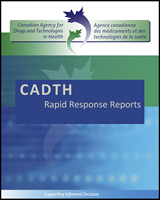Medical cannabis has many medically used preparations and methods of administration to treat an array of chronic and acute conditions. They include dronabinol, nabilone, nabiximols, plant-derived preparations made by government-licensed producers, dried cannabis, cannabis oil, and cannabidiol.1
In Canada, the current and approved uses of cannabis and cannabinoids as medicine include nausea and vomiting, appetite simulation, and pain relief. There are also many proposed therapeutic uses for cannabis and cannabinoids, such as multiple sclerosis, epilepsy, cancer, anti-inflammatory actions, neuroprotection, obesity, glaucoma, and uses in psychiatry including substance use disorders.1
Two main cannabinoids from the marijuana plant used for medical purposes are delta-9-tetrahydrocannabinol (THC) and cannabidiol (CBD). THC can increase appetite, reduce nausea, decrease pain, but the compound is known to have addictive properties. Conversely, CBD may have anti-addictive properties and is known to reduce pain and inflammation, control epileptic seizures, and treat mental illness and addictions.2 Since CBD may have anti-addictive properties, it has been proposed as an alternative to treat addictions.
The purpose of this Rapid Response is to review the clinical effectiveness, the cost-effectiveness, and the evidence-based guidelines regarding the use of medical cannabis to treat adults with addiction in residential transition/addiction programs.

